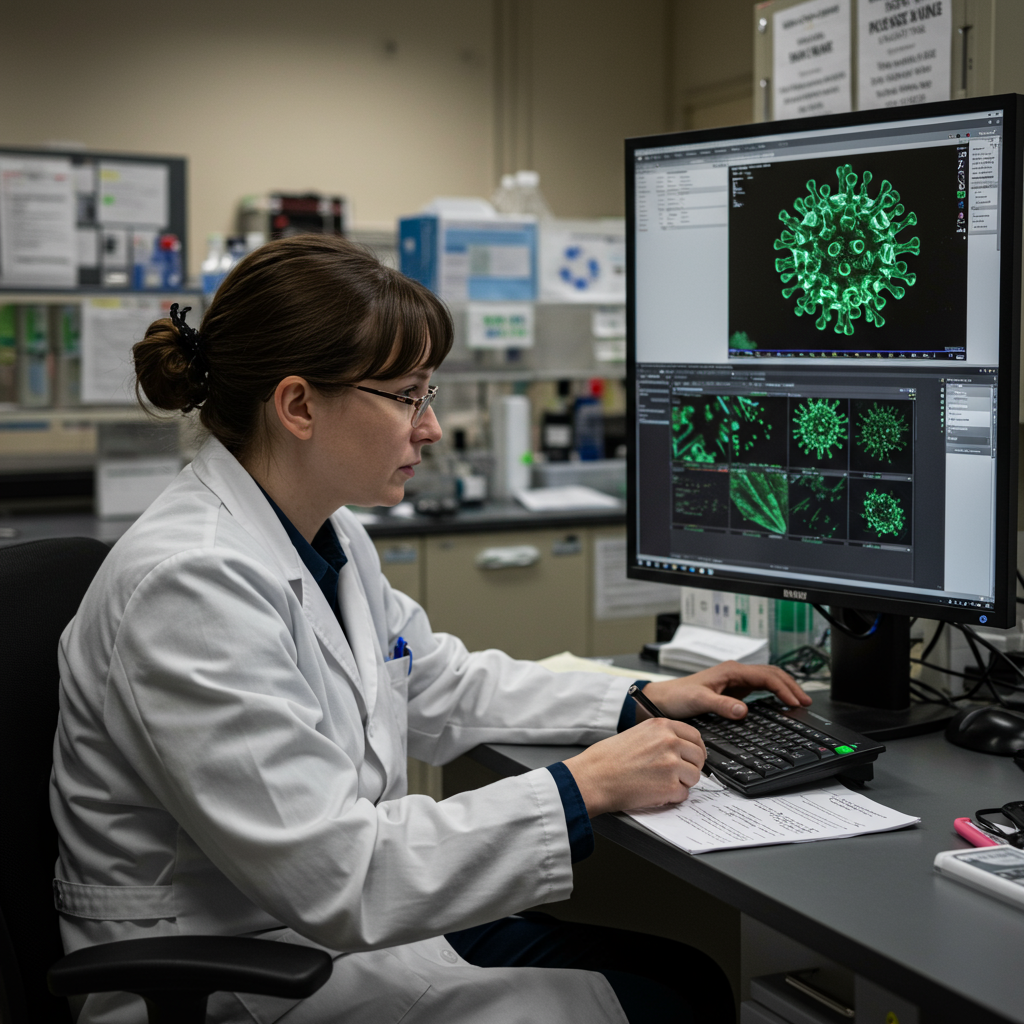For millions of women, Polycystic Ovary Syndrome (PCOS) casts a long shadow, bringing a cascade of frustrating symptoms from irregular periods and hair loss to anxiety and persistent weight gain. This common hormonal disorder often leaves individuals feeling unheard and without effective solutions, as traditional treatments offer limited relief. But a new hope is emerging: GLP-1 medications, widely recognized for diabetes and weight loss, are showing remarkable promise in transforming the lives of women battling PCOS. Could these innovative drugs be the missing link?
This comprehensive guide explores how GLP-1s for PCOS are offering a new frontier in managing this complex condition, addressing its root causes, and significantly improving quality of life.
Navigating the Challenges of Polycystic Ovary Syndrome
PCOS affects an estimated 5 to 6 million women of reproductive age in the U.S., yet it remains frequently underdiagnosed. This condition is primarily characterized by elevated levels of androgens—hormones typically associated with men—leading to a diverse range of symptoms. These can include irregular or painful menstrual cycles, excessive hair growth (hirsutism), acne, and alarmingly, it’s the most common cause of infertility.
Grace Hamilton, 27, exemplifies this struggle. For over a decade, she experienced unexplained hair loss, heavy periods, infrequent cycles, mental health issues, and significant difficulty losing weight. It wasn’t until 2021 that she received her PCOS diagnosis, finally understanding the underlying cause of her ongoing health struggles.
PCOS is also strongly linked to metabolic health issues. A staggering 35% to 80% of patients experience insulin resistance. This means the pancreas works overtime, producing excess insulin to keep blood sugar levels balanced. High insulin can fuel weight gain and further disrupt delicate hormonal balance. Consequently, a significant number of women with PCOS also contend with obesity or Type 2 diabetes.
Historically, treatment options for PCOS have been fragmented. Current approaches like birth control, lifestyle adjustments, and the diabetes drug Metformin often target only specific symptoms. This leaves many women feeling frustrated, as their individual symptom profiles require a more comprehensive and effective approach.
The Breakthrough Promise of GLP-1s for PCOS
A growing class of medications known as GLP-1 receptor agonists (GLP-1 RAs) is generating considerable excitement in the medical community. These drugs, including active ingredients like semaglutide (found in Wegovy and Ozempic) and tirzepatide (Zepbound, Mounjaro), were initially developed for Type 2 diabetes and chronic weight management. However, their profound impact on metabolic function has revealed unexpected benefits for women with PCOS.
Dr. Melanie Cree, a pediatric endocrinologist at Children’s Hospital Colorado, highlights the immense unmet need in PCOS treatment, noting that primary therapies haven’t significantly changed in nearly 50 years. Her pioneering research has focused on GLP-1s in adolescents with PCOS for over a decade. Grace Hamilton, for instance, joined one of Dr. Cree’s injectable semaglutide trials in 2024. Just two weeks into treatment, after months without a cycle, Grace’s period returned. After 10 months, she lost 50 pounds, saw hair regrowth, and reported significant improvements in her depression and anxiety. She described the drug as “the missing link” in her health journey.
Another compelling story comes from Haley Sipes, 31, a mother of three who struggled for years with undiagnosed PCOS symptoms despite aggressive diet and exercise. After a 75-pound weight loss stalled and reversed, she was diagnosed with PCOS and insulin resistance. Her doctor prescribed Zepbound. Within a month, Sipes noticed remarkable changes: reduced food cravings, decreased inflammation, less joint pain, and most notably, regular, less painful periods with no ovarian cysts since starting the medication. She lost over 60 pounds in eight months, calling it a “life-changing” improvement to her emotional and physical health.
How GLP-1 Medications Impact PCOS Symptoms
While research is still unfolding, experts believe GLP-1s primarily improve PCOS symptoms indirectly, by addressing core metabolic dysfunctions. A critical mechanism is their ability to enhance insulin sensitivity. This means the body becomes more responsive to insulin, requiring the pancreas to produce less of it to manage blood sugar. Lower insulin levels, in turn, are believed to reduce ovarian testosterone production, thereby alleviating common PCOS symptoms like irregular periods, acne, and excess hair growth. This aligns with existing PCOS management strategies that focus on improving insulin sensitivity through lifestyle changes or drugs like Metformin.
GLP-1s achieve this through several mechanisms:
Slowed Gastric Emptying: Food leaves the stomach more slowly, promoting a feeling of fullness and reducing overall calorie intake.
Insulin Release: They prompt the pancreas to release insulin only when blood sugar is high.
- Glucagon Suppression: They suppress the release of glucagon, a hormone that raises blood sugar.
- timesofindia.indiatimes.com
- www.globenewswire.com
- www.diabetes.co.uk
- www.biopharmadive.com
- www.nbcnews.com
The weight loss often observed with GLP-1s further contributes to improved insulin sensitivity, creating a positive feedback loop for hormonal balance. Dr. Cree’s preliminary data from her ongoing study supports this, showing that women who lost significant weight on semaglutide experienced a reduction in testosterone levels, with many reaching normal ranges and reporting more regular periods. This suggests GLP-1s may indeed improve ovulation, a crucial step for women with PCOS trying to conceive.
Broader Impacts and Considerations for Women’s Health
Beyond weight management and insulin sensitivity, GLP-1s are demonstrating a wider array of impacts on women’s health, though more research is critical.
Reproductive Health and Fertility
GLP-1s can significantly improve insulin sensitivity, reduce body weight, and lower testosterone levels, restoring a more balanced hormonal profile essential for managing PCOS symptoms. They appear to support fertility by promoting regular ovulatory cycles. Reports of unexpected pregnancies among women on GLP-1 treatments have also emerged, prompting exploration into potential links between these drugs and fertility outcomes. One theory suggests GLP-1s might reduce the effectiveness of oral birth control by slowing digestive processes. However, despite positive anecdotal evidence, pharmaceutical companies have not specifically studied GLP-1s for PCOS or human fertility. Experts recommend contraception for women using GLP-1s due to limited safety data during pregnancy, advising discontinuation two months before conception due to potential fetal risks.
Mental Health and Beyond
Many patients report positive effects on mood and mental clarity. Grace Hamilton and Haley Sipes both highlighted significant improvements in their emotional well-being after treatment. Conversely, some users may experience anxiety, depression, or “brain fog.” The appetite-suppressing effects may also lead to a reported reduction in cravings for addictive substances like alcohol and nicotine, hinting at broader behavioral implications. GLP-1 medications can also support kidney health and may help preserve muscle mass during weight loss.
The Role of Advocacy and Future Research
Organizations like PCOS Challenge, led by executive director Sasha Ottey, emphasize the critical need for larger, longer trials. It’s still unclear if GLP-1s can address all PCOS symptoms, or if effects vary by age or specific drug. Dr. Karen Tang, an OB-GYN, notes that PCOS itself still holds many unknowns, with some women exhibiting classic symptoms despite normal testosterone levels. Initial data is promising, but as Dr. Cree’s trial shows, not all women respond identically to GLP-1s. Three patients in her study did not lose at least 10% of their body weight, consistent with findings in the broader obesity population. This underscores the need for personalized medicine.
Access and Affordability: Major Hurdles
Despite the clinical promise, a significant barrier for many women with PCOS is accessing these medications due to cost and insurance coverage. GLP-1 drugs can cost around $1,000 per month without insurance. While many insurance plans cover GLP-1s for Type 2 diabetes, coverage for obesity or unapproved uses (like PCOS) is less common.
Dr. Alyssa Dominguez, an endocrinologist at USC, notes that many PCOS patients might technically qualify for approved GLP-1 uses based on BMI or co-existing conditions, yet still face denials. While some drug manufacturers offer discounts, the financial burden remains substantial. Political decisions also play a role; in April 2024, former President Donald Trump rejected a plan that would have mandated Medicare and Medicaid coverage for obesity drugs.
This financial hurdle leads some patients, like Nabeelah Karim, 34, to seek alternative, potentially risky solutions. Diagnosed with PCOS at 19, Karim experienced severe symptoms that worsened after childbirth. When doctors suggested weight loss or birth control, she eventually sought Mounjaro through a digital health startup. Her long period stopped within days, and she began losing weight. However, when insurance approval lagged, she resorted to a cheaper, unapproved compounded version of the drug from a third-party pharmacy.
The Risks of Compounded Drugs
While compounded drugs can be legally made during FDA-declared shortages or for specific medical needs, they are not FDA-approved. This means their safety, efficacy, and precise ingredients are not rigorously tested or verified. Both Novo Nordisk and Eli Lilly have pushed back against the practice, especially now that shortages have eased. As Dr. Dominguez warns, “When people ask about how safe compounded drugs are, the answer I typically give is I don’t know.” This contrasts sharply with branded drugs, which have clearly defined risks and benefits proven in extensive clinical trials. Grace Hamilton, for example, is appealing her insurer’s denial of semaglutide after her trial ended, determined to access the proven medication.
Frequently Asked Questions
How do GLP-1 medications help women with PCOS symptoms?
GLP-1 medications, like semaglutide and tirzepatide, primarily help women with PCOS by improving insulin sensitivity and promoting weight loss. For many with PCOS, insulin resistance leads to higher insulin levels, which can stimulate the ovaries to produce more testosterone. By making the body more responsive to insulin, GLP-1s reduce excess insulin, thereby lowering testosterone production. This indirect effect can alleviate key PCOS symptoms such as irregular periods, acne, excess hair growth, and potentially improve fertility by regulating ovulation.
What are the main challenges women face in accessing GLP-1s for PCOS?
The biggest challenge is insurance coverage. While many women with PCOS have co-existing conditions like obesity or prediabetes that could qualify them for GLP-1 coverage, many insurance plans do not cover these drugs for weight loss or for unapproved uses like PCOS management. This leaves patients facing monthly costs around $1,000. Additionally, there have been supply shortages of popular GLP-1 medications, and some women resort to unapproved compounded versions, which carry significant safety and efficacy concerns as they are not FDA-regulated.
Are GLP-1s a cure for PCOS, and who is a good candidate for this treatment?
GLP-1s are not a cure for PCOS, but rather a powerful tool for managing its complex symptoms and underlying metabolic issues. PCOS is a chronic condition that requires ongoing management. Not all women with PCOS will respond to GLP-1s in the same way, and some may not experience significant weight loss or symptom improvement. A good candidate is typically a woman with PCOS, especially those with insulin resistance, obesity, or Type 2 diabetes, who has not found sufficient relief from traditional treatments. Decisions about starting GLP-1s should always be made in close consultation with a healthcare provider who can assess individual health, risks, and benefits.
The Path Forward: Hope and Continued Research
The emerging role of GLP-1s in PCOS treatment offers a beacon of hope for millions of women who have long struggled with this often-misunderstood condition. From improving metabolic health and regulating hormones to potentially enhancing fertility and mental well-being, these medications are proving to be transformative for many.
However, challenges remain, particularly around long-term data, universal accessibility, and the need for more targeted research. As scientific understanding evolves and more comprehensive clinical trials are conducted, GLP-1s are poised to become a cornerstone in the personalized management of PCOS, ultimately empowering women to live healthier, more vibrant lives. Continued advocacy, research investment, and policy changes are crucial to ensure these life-changing treatments are within reach for all who could benefit.




